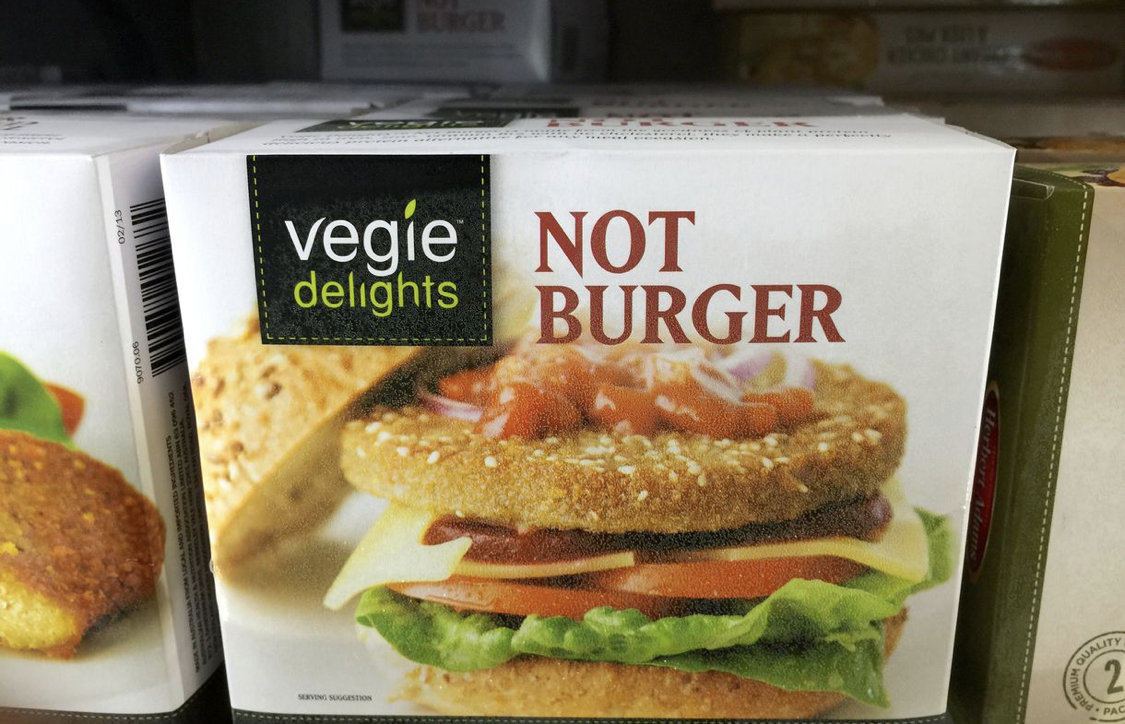If the meat industry gets their way, soon you won’t be able to find a container labeled “meatless burgers” in Mississippi grocery stores.
A new 2019 law recently went into effect that forbids companies from using any kind of meat terminology when describing or selling vegan and vegetarian food products. The law comes at a time when a growing number of people are intentionally seeking meat alternatives, and supporters of the law say these rules are necessary so consumers aren’t confused. Breaking the law could mean up to a year in prison and a fine of $1,000.
RELATED STORY:
The new law will not allow sellers of plant-based foods to use the following phrases: “vegan burgers,” “meatless hot dogs,” “vegan bacon,” “meatless meatballs,” “vegan chorizo” and “meatless steaks.” Words like “burger” and “hot dog” would be permitted only for products from slaughtered livestock.
Upton’s Naturals and the Plant-Based Foods Association are suing because they want a federal court to decide whether the new law is constitutional. If it is found unconstitutional, it will be good news for consumers because there is no sign they’re being tricked by the increasing prominence of plant-based burgers — if anything, they are seeking them out.
The plaintiffs argue that their products are already labeled “vegan,” therefore, no consumers are confused. If anything, the new requirements, such as avoiding product descriptions like “veggie burger,” makes things much more confusing. Justin Pearson, attorney for the plaintiff, said at a press conference:
“Thankfully, Mississippi has not started to enforce that ban yet. But we have filed that lawsuit to hopefully prevent that from ever happening.”1
Supporters of the new law have stated that anyone can still make or sell meat-like vegan foods, but they have to tell the truth about what they are selling.
Those opposed to the law believe the meat industry passed the bill in an effort to silence competition, saying the ban on selling “veggie burgers” violates their first amendment right to free speech. Michele Simon, the executive director of the Plant-Based Foods Association, said in a statement:
“The plant-based meat alternative category is on fire right now, with consumers demanding healthier and more sustainable options. This law, along with similar laws in several other states, is the meat lobby’s response.”1
Jessica Almy, director of policy at the Good Food Institute, an organization that works on expanding access to plant-based foods, stated:
“There is no evidence that consumers are confused by plant-based bacon or veggie burger labels, and federal laws are already in place that prohibits consumer deception. This law is a tremendous overstep of state powers.”1
RELATED STORY:
Defendants in the lawsuit are Mississippi Gov. Phil Bryant and Commissioner of Agriculture and Commerce Andy Gipson.
Pearson said he hopes a judge will issue a preliminary injunction, which would temporarily stop the law from being enforced, adding:
“People understand that foods labeled as ‘meatless’ do not contain meat. Customers seek out these foods specifically because they are vegan. However, for sellers of vegan foods it is extremely helpful to explain to customers the characteristics of the foods using meat-product terms.”1
Founder of Upton’s Naturals, Dan Staackmann, said customers have never been confused about his company’s product line, adding:
“We have not had a single complaint from any consumers about any kind of misconception about what our products are. Let’s face it, there are not a lot of outlets for our types of products in the state.”
RELATED STORY:
Upton’s “proudly” marks its products as vegan, the lawsuit said, and no reasonable customer would be misled by the term “vegan bacon.”1
The lawsuit was filed by the Institute for Justice, a national group, and the Mississippi Justice Institute, which is the legal arm of the Mississippi Center for Public Policy, a conservative think tank that pushes for free markets and limited government. The lawsuit states the new law will force Utpon’s and other companies to redesign their packaging, which will create consumer confusion.
The new law gives the Mississippi Commissioner of Agriculture and Commerce the authority to order a person or company to change its labeling if she or he believes a product is falsely claiming to be meat.1
RELATED STORY:
Missouri lawmakers passed a similar measure in 2018 which also led to a lawsuit. In June, the Associated Press reported that settlement talks were ongoing.
Clearly, plant-based food advocates hope — and sellers of conventional meat fear — that one day soon a more climate-conscious and cruelty-free population will better understand the land-use problems associated with conventional meat production, along with the gross mistreatment of animals, and will seek healthier, plant-based options.
Source:












